Inside a neuroscientist’s mind
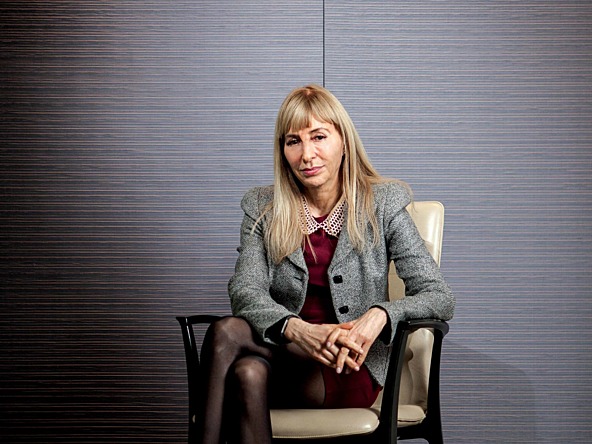
Baroness Susan Greenfield didn’t set out to be a scientist, never mind a neuroscientist, and her interest in the brain was more accidental than intentional. Indeed, she hated science at school, complaining it was full of facts and lacking creativity and imagination. “Whereas history and literature were all about things that a schoolgirl cares about – why wars start; why people fall in love; what is an individual?” she explains.
But life can take unexpected twists. Having embarked on a philosophy degree at Oxford, she switched to psychology, and it was then that the brain started to pique her interest. Greenfield describes Oxford in the 1970s as “a hoot” and, in keeping with that tone, her tutor decided it would be “a laugh” if she became a scientist – so her path as a scientist was set.
Perhaps her ability to avoid being pigeon-holed in those formative years accounts for her particular approach to neuroscience; why she’s as interested in the concept of consciousness as researching Alzheimer’s disease. For, today, she is founder and CEO of Oxford-based biotech company Neuro-Bio, dedicated to researching a novel approach to neurodegenerative disorders, and sits in the House of Lords.
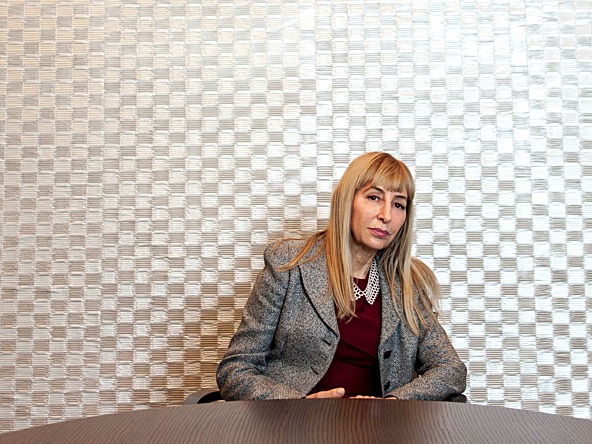
controversy and criticism
Greenfield established her academic credentials researching and lecturing in pharmacology at Oxford, and was made a professor in 1996. But it was her stint as the first female director of the Royal Institution, between 1998 and 2010, that really boosted her profile – not always in the way she intended. It ended acrimoniously when she was made redundant surrounded by claims and counter-claims of poor financial management and sexual discrimination.
Greenfield has attracted a lot of attention since joining that narrow band – mostly consisting of men – who have ventured from academia to communicate science more widely. Forthright female scientists talking to the general public about their work – through books or public speaking engagements – are rare. And while she has been prolific in reaching wider audiences with insights into the inner workings of the brain, Greenfield has been dogged by criticism.
“No one criticises me to my face. In science, when you do research, you have peer review, and we are all used to, and expect that. Your work will be challenged by others and that is healthy.
“The kind of things you see on Google – which is not that – is one or two people who love social media and have found that people will pay attention to them if they are sensationalist.
“Last year, without telling me, I suddenly find I’m being attacked in some [BMJ] editorial, which I think was wrong. I should be given the chance to respond, which I was, eventually, after all the media had gleefully jumped on this. In my response to BMJ, I take the issues they raised point by point. But people don’t want to bother to do that as it’s not so exciting; it’s much easier to say blond Baroness in mini-skirt slammed by scientists – that’s much more exciting.”
The criticisms often levelled at Greenfield are that she doesn’t have enough evidence to support some of the things she says, which she strongly refutes. “They might as well say the Pope isn’t Catholic because if you look at Mind Change: how digital technologies are leaving their mark on our brains, I cite hundreds of papers. The evidence might not be conclusive, they might disagree with it, but you can’t say it doesn’t exist,” she says.
The themes she talked about in her 2014 book Mind Change are still a focus for her today – in particular, how screen technologies such as social media and computer games might be changing the human brain.
external drivers
“Since [the book], perhaps the most telling single example I can give is the studies that found people were uncomfortable sitting still for 10 minutes and that most would rather give themselves electric shocks than be left with their thoughts. It suggests we are encountering a lifestyle, or a younger generation, where everything is externally driven.
“In the old days, we would have made up a game, and that is important to do because you’re developing an imagination and an inner narrative. By doing that, you are in control, you are being creative, developing a little life story and identity – all of which gives you an inner confidence that helps you cope with the vicissitudes of life. If you are just a passive recipient of screen options and second-hand imagination, you’re constantly going to be a consumer – always feeling out of control and disempowered.”
“The environment can change dramatically, but our brains will adapt to it. That’s why we occupy more ecological niches than any other species on the planet,” she adds. But no matter how well the brain adapts, can humans adapt in a world where artificial intelligence (AI) gains ground? Will AI take over from human intelligence in all sorts of areas of work? Greenfield’s prognosis on the impact of the changing technological landscape is often gloomy, but, in this particular area, less so.
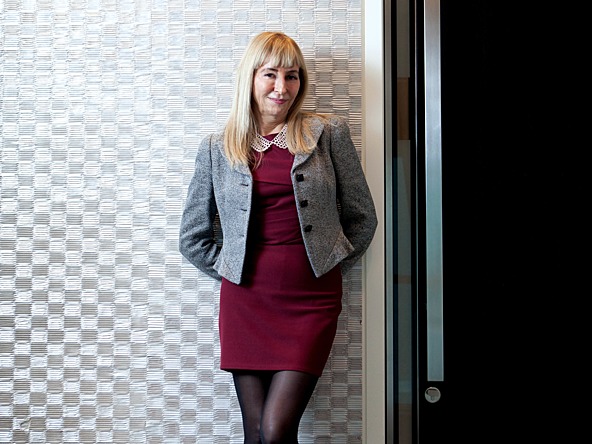
biological vs silicon
“People thinking it will be [a replacement for humans] is a problem. Scientists throughout the years, have been very aware of the differences between biological and silicon systems. Roger Penrose, the mathematician, said ‘there’s no algorithms for common sense and intuition’.
“So, for me, it’s not really a problem, because computers are very good at information processing; we are good at knowledge – we have consciousness, insight and imagination. And because that’s founded on a lifetime of experience, we are joining up the dots in unique ways according to our unique experiences, and it gives us an understanding.
“Computers do what computers do very efficiently – and ever more impressively compared to us – but they are not biological systems. Biological systems have different transmitters, different chemical messengers, which means there’s a qualitative dimension to them. We are also embedded with an immune system and an endocrine system, so the connectivity is changing all the time. We don’t work computationally, so the two should not really be confused.”
So if we have to establish the relevant roles for humans and computers, and stick to the things that each does best, will creative skills be deemed more important in the workforce of the future?
“We have to be careful how we define creative, because it doesn’t [necessarily] mean painting or writing novels or symphonies; it’s doing something that no-one else has done, even if it’s just rearranging a kitchen, seeing a relationship between various things, or joining up the dots in a different way to how everyone else has done – which is what science has done all the time.
“With Einstein or Shakespeare or Mozart, it’s not about their memory, or ability to multi-task, but what they did was be different from anyone else we’d encountered. So we want to give everyone the chance to be that unique individual, rather than a second-rate machine. In 1964, Isaac Asimov, predicting what life would be like in 2014, said that psychiatry would be the worst issue – people would be depressed and bored, and the true elite of mankind would be the people who were creative, for they alone would do more than serve a machine – which is quite prophetic.”
This glimpse of the less optimistic Greenfield continues when we start talking about the implications for businesses in the future. It is also where you can see why Greenfield’s detractors get annoyed. Although she by no means claims scientific proof for some of her proclamations, you can’t help feeling that the sweeping statements she starts to make would feel more at home in a Sunday tabloid than coming from the mouth of an eminent scientist.
For Greenfield believes that the changes in behaviour among a generation growing up with screens will impact on the workforce and leadership, customers, and on the goods and services that people want to buy. One particular area she cites is risk management. “You have to realise that actions have consequences which is not necessarily the case if you’re living in a screen world. So for younger people, there may be more recklessness and addictive behaviour, and that can be important to know.”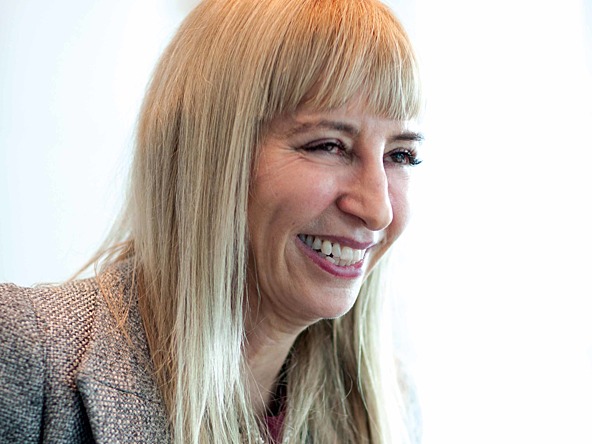
customers of the future
But it’s not just managing a workforce of this screen-obsessed generation that bothers her. “Re customers, we might now be dealing with a very different profile of people, who are much more like small children; who have a rather fragile sense of identity; who aren’t very empathetic or good at interpersonal skills; who are slightly adversarial and aggressive, and very self-referential. They have short attention spans and can’t think in the abstract, and are used to bombardment of external information and inputs.
“Who, over the age of five, should be playing Pokémon Go? And yet they are. Or people wearing onesies, or adult colouring books – these are symptomatic of an infantile profile. So I think the way we’re going – and this isn’t scientific evidence, but my prediction – is we are going to be dealing with people who are very immature emotionally, even if they are very clever – that’s the customer. Someone who won’t be able to hold a conversation for very long, or look you in the eye, and who is possibly very thin-skinned.”
Greenfield also questions the role of brands going forward: “Given that they’re living in a world that’s screen-based, the old idea of a brand may not be so compelling.”
So does she see anything positive in the changing landscape? “The democratisation – that anyone can say anything, that it doesn’t matter what you look like, your age or gender – but the problem with that is you are cutting out body language and interpersonal communication.”
Greenfield is somewhat infuriating; if ever there was a time when we need a smart, kick-ass woman, putting forward challenging ideas, inspiring future generations to explore scientific uncertainties and dispelling the stereotypes of how women over a certain age should look and talk, it’s now. She can do all that, but she can also, with remarkable ease, make incredibly sweeping statements about a whole generation.
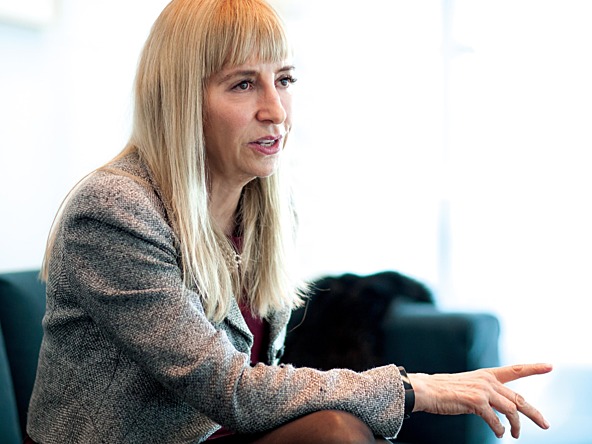
Subjective sensations
However, her most recent book, A Day in the Life of the Brain, is not about the technological-induced neurosis of future generations, but rather it explores consciousness and how each of us builds and experiences an entirely personal view of the world through a typical day. I wonder how hard it was to write a book exploring something so private and individual as consciousness.
“When I was a girl, my mum said to me ‘what you see as red isn’t what I see as red’. And that is why scientists have a problem with it. If it’s so quintessentially objective and inside your head or your body, how can science ever understand it? Because science, by definition, is objective. That didn’t put me off; that’s more of the challenge. How do our subjective sensations arise from molecules and chemistry? The more you think about it, the more your brain just reels.”
“If I said to you ‘I’ve had this insight into how the brain generated consciousness’, what do you expect me to show you? We don’t know; we have no idea. Whereas if I said I’d designed a perpetual-motion machine, or a time-travel machine, you’d know what to expect of it, even if you didn’t know what it would look like.”
Greenfield’s time management, energy and commitment are impressive and you wonder how she manages to pause for a breath between the science, the book writing, the House of Lords and the public speaking. The writing is mostly done at the weekend – “I don’t do cooking or gardening.”
While she no longer puts on a lab coat – “I think if I did that, my group would be horrified” – she works closely with the researchers, looking at their data and planning the next experiments.
Her House of Lords appearances are carefully selected. “I wish I could be there more, but – unlike many of the members – I’m neither rich nor retired. The etiquette there is that you wouldn’t speak in a debate that you weren’t an expert or authority on. So I speak on science and technology, women’s issues, education etc. I do many, many public talks, but it’s only when I make a speech in the House of Lords that I write the speech and read it. Because you have to be sure you’re right with the facts and figures.”
Her ultimate ambition now is to get better treatment for Alzheimer’s. Not a cure? “Well the two could converge; what we’re trying to do is to develop a blood test that could, even at the pre-symptomatic stage, tell you there was a problem – it takes 10 to 20 years before the symptoms come on. So if we can do that and couple it with a medication that stops any more cells dying – that means if you took the medication when your blood tests were showing signs then the symptoms would never come on – that would be an effective cure.”

We hope you enjoyed this article.
Research Live is published by MRS.
The Market Research Society (MRS) exists to promote and protect the research sector, showcasing how research delivers impact for businesses and government.
Members of MRS enjoy many benefits including tailoured policy guidance, discounts on training and conferences, and access to member-only content.
For example, there's an archive of winning case studies from over a decade of MRS Awards.
Find out more about the benefits of joining MRS here.





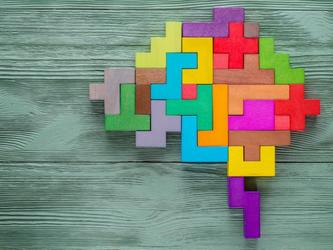


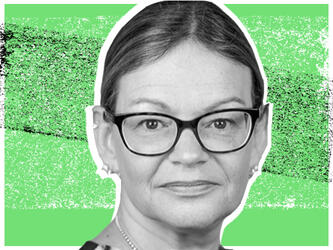





0 Comments